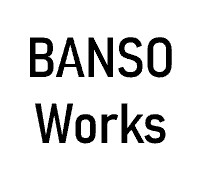Must-Have Essentials for a Successful Business Trip to Japan

Don’t Forget These Key Items for Your Business Trip to Japan
Traveling to Japan for business requires more than just the standard items you might pack for any other destination. Japan has its own unique culture, practices, and needs that can catch even seasoned travelers off guard. To ensure you’re fully prepared, here’s a guide focused on the key items you should bring specifically for a successful business trip to Japan.

1. Business Cards (Meishi)
In Japan, business cards are more than just contact information—they’re an essential part of business etiquette. The exchange of business cards, or meishi, is a formal ritual, and not having one can leave a poor impression. Bring more than enough cards, as you’ll likely hand them out frequently during your trip. Make sure they’re stored in a proper business card holder, and remember to present them with both hands, with the Japanese side facing up if your card is bilingual.
2. Slip-On Shoes
Slippers are usually provided, so unless you prefer not to, you can use those. However, Japanese business culture often requires frequent removal of shoes, whether you’re entering a traditional Japanese restaurant, visiting certain offices, or even some hotels. To avoid any awkwardness, bring a pair of polished, professional-looking slip-on shoes that are easy to take on and off. Also, make sure your socks are in good condition, as they’ll likely be on display more often than you’re used to.
3 Japanese Yen
Japan is still largely cash-based when it comes to transactions. While credit cards are widely accepted in Japan’s major cities, many smaller businesses, local restaurants, and even some taxis still prefer cash. ATMs that accept foreign cards can be difficult to find outside of major urban areas, so it’s wise to carry enough Japanese yen to cover your daily expenses. Consider bringing a small coin pouch, as Japanese currency involves a lot of coins, which can quickly accumulate.
4. Portable Wi-Fi Device
Staying connected is crucial during a business trip, and while Japan has extensive Wi-Fi networks, it’s not always reliable, especially when you’re on the move. A portable Wi-Fi device ensures you have a consistent internet connection for checking emails, navigating unfamiliar areas, or using translation apps. You can rent these devices at the airport upon arrival or even pre-order one to pick up when you land.
5. Personal Seal (Hanko)
While this is optional, having a personal seal or hanko can be useful if you’re planning to conduct business that involves signing documents. In Japan, hanko is often used in place of a signature for official documents. While not all companies will require it, having one can show your respect for local customs and smooth over any potential administrative hurdles. If you don’t have one, most official documents can still be signed with your usual signature.For foreigners, contracts can of course proceed with a signature instead of a hanko, but having a hanko can be convenient and also convey a professional impression.
6. Compact Umbrella
Japan’s weather can be unpredictable, with sudden rain showers common, especially during the rainy season (June to mid-July) and in the fall. A compact, high-quality umbrella is an essential item to pack, as it can save you from getting soaked while on your way to important meetings. Choose a sturdy yet lightweight umbrella that can easily fit in your bag without taking up too much space.Recently, Japan has experienced weather patterns similar to tropical regions in Southeast Asia, with rain coming and going unpredictably, so it's important to be cautious
7. Reusable Chopsticks
While disposable chopsticks are widely available in Japan, bringing your own reusable pair can be a small yet respectful gesture towards sustainability, which is increasingly appreciated in Japan. It also ensures that you’re prepared for any meal, whether at a formal business dinner or grabbing a quick bite at a local eatery.
8. Japanese Etiquette Guide
Although not a physical item, having a solid understanding of Japanese business etiquette is crucial. Bring a small guidebook or download an app that can provide quick tips on Japanese customs, such as proper bowing techniques, seating arrangements during meetings, and how to politely refuse something. This will help you navigate social situations with confidence and show respect for Japanese traditions.
10. Custom-Fit Face Masks
Even though mask mandates have been lifted in many parts of the world, mask-wearing remains common in Japan, particularly in crowded places or during flu season. Bring a set of comfortable, custom-fit face masks that you can wear during your trip. It’s a sign of consideration for others, especially in a country where public health and cleanliness are highly valued.
Conclusion
Packing for a business trip to Japan involves more than just the basics. By focusing on items that align with Japan’s unique cultural and business practices, you’ll not only be better prepared but also demonstrate respect for the local customs. This attention to detail can go a long way in building strong business relationships and ensuring your trip is both successful and culturally enriching.

Writer and Editor: Lio, Japanese career consultant

Lio is a nationally licensed career consultant in Japan. He holds the Level 1 SEO Certification and is a certified web analyst. Born in Japan, he has lived in four countries, gaining an understanding of various cultures while being well-versed in Japan's unique work culture and language. With 25 years of experience in HR at both Japanese and multinational companies, he leverages his expertise to support individuals seeking to work in Japan




